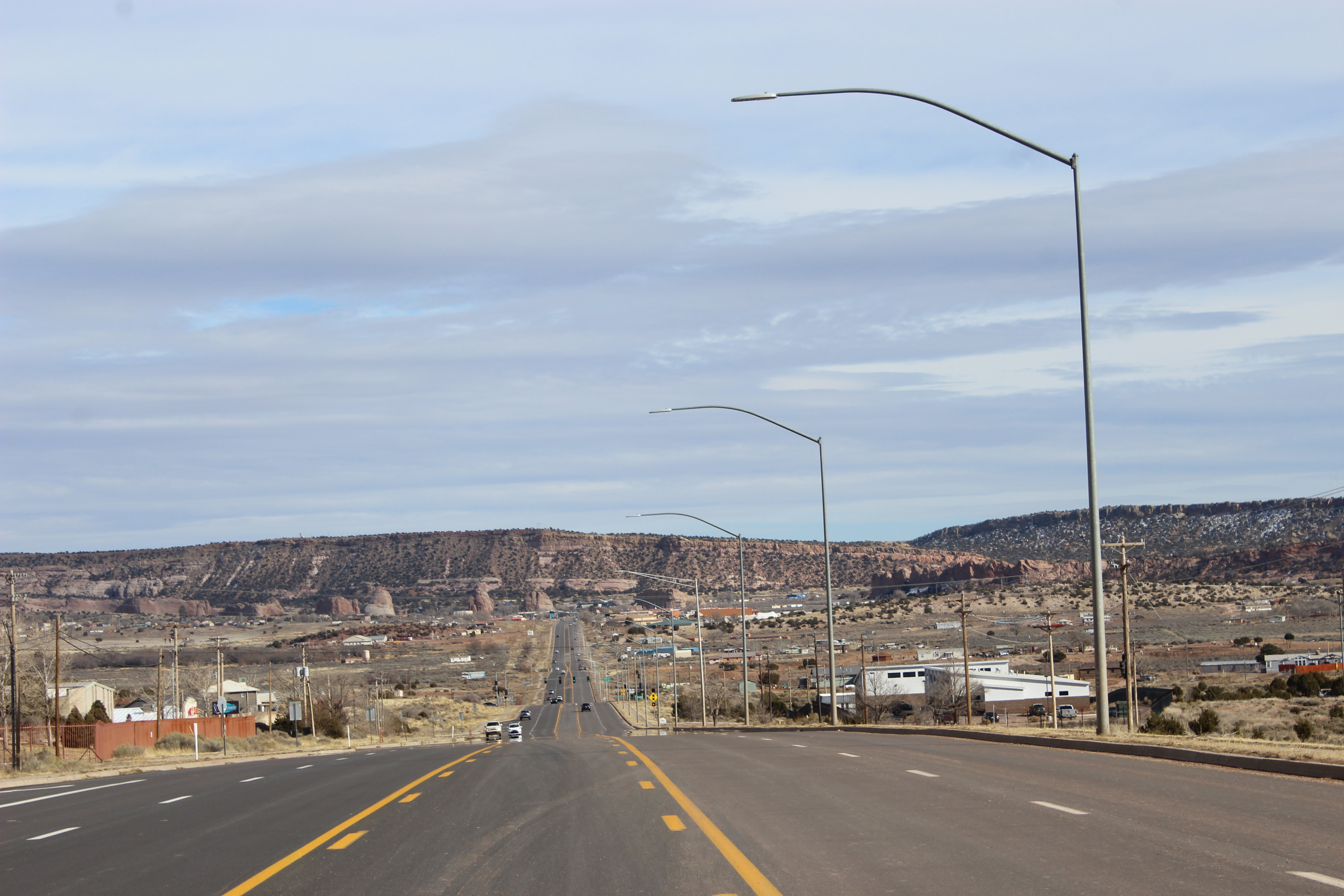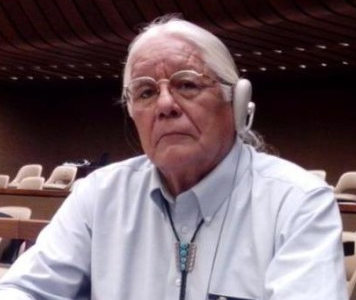
- Details
- By Lenny Foster
Guest Opinion. Praying with water this morning, thanking her for quenching the thirst of Mother Earth, five finger nation, plant nation, mineral nation, four-legged nation, winged nation and for quenching the thirst of the spirit for truth, peace and love. When you pray with the water, she responds if you listen, she speaks up!
I contemplated the decision of the U.S. Supreme Court (SCOTUS) ruling against my Diné people. It is an abomination, and a supreme insult, and long-term mistake.
For five hundred years we have fought the scourge of colonial forces acting against the people, our Earth, ravaging resources with avarice and malice. The court’s decision is evidence that the United States is not considering reconciliation and healing–rather a desperate and aggressive continuous bid for control and profit.
When we consider the alternative–a decision that respectfully recognizes the legacy of brutality and destruction of water herself- a decision to restore the water to Navajo Nation control and honoring the broken treaties. With such a decision, they would have created an opportunity whereby reconciliation and repatriation would have genuine and significant possibilities.
Instead, their decision of 5-4–against the Navajo Nation–they will continue contaminating our rivers with toxic waste from mining and other extraction practices that devastate our communities with cancer and other pollution created diseases. And force the “begging bowl” model, of our past, empowering the corporations, to control what is already legally and rightfully ours, the natural resources, the water, they already squander and destroy.
The decision is in flagrant violation of our treaties, all broken, yet still relevant. The United States government reinforces offenses in perpetuity: they have now violated their fiduciary responsibilities to the tribe.

Treaties ensured the land and water into trust within our sovereign nation, and they ignored their responsibility going forward: to hold more sacred the honor and legacy of our people, and our cultural inheritance, despite the sins of their conquering past.
They told us to “lay our weapons down, and become an agrarian society, and culture of farmers.” That requires land, and water. That requires land and water resources to be managed, stewarded, and protected, within the jurisdiction of the Diné nation. The ones who decided against that on the SCOTUS, are being careless and short-sighted, as well as disingenuous.
The final answer lies with water herself, who knows her caretakers and protectors. Her spirit is nourished and nurtured by those who continue to respect her, thank her and pray with her. Her strength and longevity should not be disregarded or underestimated. Tó éí iiná! Mní W’Coní!
Lenny Foster (Diné) is a veteran of the Alcatraz Occupation (1969) and Wounded Knee (1973). He served as the director of the Navajo Nation Correctons program until his retirement in 2017. Foster is a board member of the International Indian Treaty Council.
Help us tell the stories that could save Native languages and food traditions
At a critical moment for Indian Country, Native News Online is embarking on our most ambitious reporting project yet: "Cultivating Culture," a three-year investigation into two forces shaping Native community survival—food sovereignty and language revitalization.
The devastating impact of COVID-19 accelerated the loss of Native elders and with them, irreplaceable cultural knowledge. Yet across tribal communities, innovative leaders are fighting back, reclaiming traditional food systems and breathing new life into Native languages. These aren't just cultural preservation efforts—they're powerful pathways to community health, healing, and resilience.
Our dedicated reporting team will spend three years documenting these stories through on-the-ground reporting in 18 tribal communities, producing over 200 in-depth stories, 18 podcast episodes, and multimedia content that amplifies Indigenous voices. We'll show policymakers, funders, and allies how cultural restoration directly impacts physical and mental wellness while celebrating successful models of sovereignty and self-determination.
This isn't corporate media parachuting into Indian Country for a quick story. This is sustained, relationship-based journalism by Native reporters who understand these communities. It's "Warrior Journalism"—fearless reporting that serves the 5.5 million readers who depend on us for news that mainstream media often ignores.
We need your help right now. While we've secured partial funding, we're still $450,000 short of our three-year budget. Our immediate goal is $25,000 this month to keep this critical work moving forward—funding reporter salaries, travel to remote communities, photography, and the deep reporting these stories deserve.
Every dollar directly supports Indigenous journalists telling Indigenous stories. Whether it's $5 or $50, your contribution ensures these vital narratives of resilience, innovation, and hope don't disappear into silence.
 The stakes couldn't be higher. Native languages are being lost at an alarming rate. Food insecurity plagues many tribal communities. But solutions are emerging, and these stories need to be told.
The stakes couldn't be higher. Native languages are being lost at an alarming rate. Food insecurity plagues many tribal communities. But solutions are emerging, and these stories need to be told.
Support independent Native journalism. Fund the stories that matter.
Levi Rickert (Potawatomi), Editor & Publisher
